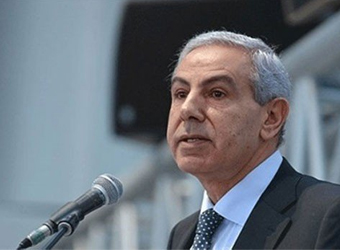Egyptian Trade and Industry Minister Tarek Qabil inaugurated on Tuesday the first Export Services Complex, affiliated to the Export Promotion Authority and located in Sixth of October city, the ministry said in a statement.
The establishment of the complex is part of the state’s 2020 foreign trade promotion strategy, which aims at facilitating access by exporters to foreign markets.
The complex will offer consultancy services, training, technical assistance, and solutions for funding and marketing, making it a one-stop shop for entities involved in the export process.
It will also provide data about foreign trade, potential markets, and products for export, in addition to promoting the companies on the authority’s online portal for exposure to foreign importers, Export Promotion Authority executive director Sherine El-Shorbagy said.
The complex will also provide services by the Egyptian Exporters Association (EXPOLINK), which will offer data, market research, and marketing services, El-Shorbagy added.
The United Bank will provide consultancy, banking services, and training on making payments and opening letters of credit, and the Egyptian Organisation for Standardisation & Quality will offer training on standards for industrial products.
The state’s five-pillar strategy relies on industrial development with a target of increasing the industrial sector’s contribution to the GDP from 18 to 21 percent by 2020.
It also relies on developing SMEs to focus on industrial production.
“The strategy is based on developing industry, increasing exports, controlling imports, ensuring a stable, balanced growth and creating a business climate capable of supporting the national economy,” Kabil had said last year in a ministry statement.
The third pillar involves boosting Egypt’s exports and narrowing the trade deficit by increasing non-oil exports by 10 percent annually, to bring it to over $30 billion by 2020.
The fourth pillar is the overhaul of technical and vocational education and training, and the fifth is working on governance at the ministry’s institutions.
Source: Ahram online
